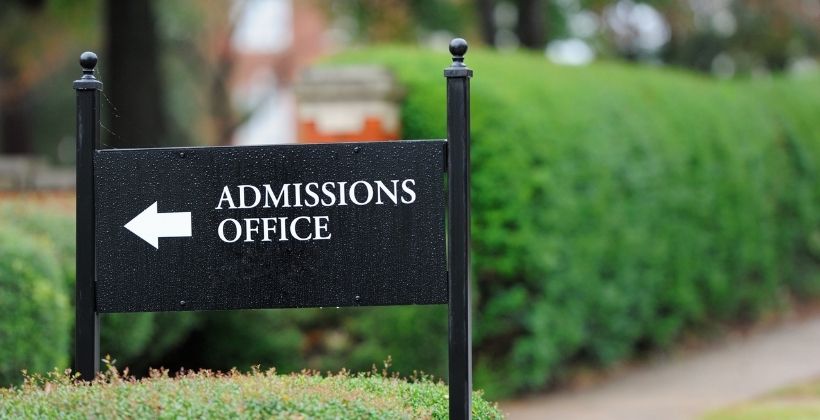Graduate Admission Committee- What do they look for in an applicant?

Getting into your desired graduate program, is no easy task, indeed. However, admission to your desired school may not be as stressful and daunting as you think. Wouldn't it be great if you could think like an admission officer and predict, at least to some extent, if you stood a chance at admission? Have you ever wondered what the graduate admission committee looks for in an applicant?
The work of the admission committee is exceptionally complicated. It decides to admit or reject applicants based on many factors. As the admission requirements vary from program to program, the evaluation factors of applicants differ too. But, we can broadly define the criteria in two general categories: Academics and Personal Qualities.

Academics:
1. Academic background
The admission committee goes through your academic background thoroughly. They check what type of institution you graduated from and if it was accredited. They also want to know:
Are you sufficiently able to communicate in oral and written English?
Do you have experience in academic teamwork?
Will your previous course content support the curriculum of the current program you are applying to? (This is why, if your previous curriculum doesn't support your future studies, the admission committee may offer you admission to their pre-master’s program before they admit you to the graduate program.)
2. Grades
Graduate admission committees are intent on knowing relevant course grades, which will be a pretty accurate prediction whether you might successfully undertake the graduate curriculum. They also want to see if your grades increased over the years of prior education and what your average undergraduate grade point was.
3. Cognitive Ability
An applicant's success in grade school depends on his general cognitive abilities, intellectual curiosity, critical thinking, skills, logic, problem-solving skills, the ability to conduct simple research and to complete the process. These elements are essential for the admission committee to evaluate your cognitive ability to complete a master's program, successfully. They also look for any exceptional talent(s) that may work as a validation of your abilities.
4. Research Background or work experience
If you plan to apply for a thesis or course-based program at a graduate level, having quality publications will help prove your ability to complete challenging graduate courses. Mastery of relevant research methods or techniques and an interest in a multidisciplinary research approach will boost your application's likelihood of success.
If your interest is to enroll in any thesis, course, or professional programs, then relevant work experience will make a significant difference.
Personal Qualities:
1. Personality and Personal Competencies:
What personal characteristics make you the right candidate for this program? The admission committee looks for these qualities in an applicant:
Friendliness and Likeability (Agreeableness)
Trustworthiness and Conscientiousness
Emotional Stability
Extraversion (Sociability and activities)
Artistic Sensitivity, Imagination and boldness
Leadership experience
Time Management Skills
Because of the competitiveness in applications for certain programs at high ranking educational institutions, more and more committees are having to look at the above factors in order to choose between applicants.
2. Motivational Factors
The admission committee is curious to know your motivations for applying to this program and at this specific university? What is unique about this program at this university? Other important factors are:
Motivation to do graduate programs
Desire to attain specific skills from this program to advance your career
Ambitions (What can this candidate achieve in 10-20 years?)
The importance of every factor described above varies from one admission committee to another. Top institutions worldwide, especially the IVY league universities, give equal importance to all the elements mentioned above.
However, at other universities, grades, academic background and motivation are more important than personality and personal competencies. Most importantly, committee members consider if your interest and skills match what the program offers.
So, what happens after I submit my application?
As soon as you submit your graduate school admission, your profile is then available for auditing and scrutinizing by faculty members of the program you are applying to and by the admission committee. The admission committee, in most cases, screen and pre rank all applications. After your application passes the screening, it is sent for second-level screening.
The committee tries to take note of each applicant's program-related interest. They also check if any specific faculty member’s name is mentioned in the application. If mentioned, then the application is sent to that particular member for further evaluation. Lastly, if you make it to the end, an army of faculty members evaluate and debate your fate.

What are some significant “RED FLAGS” for the graduate admission committee?
Low CGPA
Your average undergraduate GPA/CPGA/marks shows your ability to cope and perform well in a classroom and a penchant for higher education. If you are applying to very competitive programs, then a low GPA may very likely derail your application. However, you can try and compensate for your low cgpa with relevant projects, published papers, work experience (if applicable) and research.
Low GRE or GMAT score
Graduate schools worldwide use GRE (Graduate Record Examination) or GMAT (Graduate Management Admission Test) scores as a constant parameter to evaluate applicants due to different grading systems and standards of schools worldwide. Some programs even have cut-off scores, meaning you need a minimum score on the qualitative and/or qualitative section of the GRE.
Flawed Statement of Purpose
You must be clear about your life’s aspirations and goals. If you aren’t sure what to expect after graduate school, you are in a disadvantageous position. Moreover, poor writing skills filled with spelling, grammatical errors and sentence structure will definitely “put a death sentence” on your application.
Bland Recommendation Letter
A recommendation letter is supposed to be an honest and objective assessment of an applicant. One example of a poorly written recommendation letter is one which contains a “heap of praise”, but no examples to support those praises. It may indicate that either you couldn’t find the right recommender, or that possibly you wrote the recommendation letter yourself.
A letter of reference is a document in which the writer assesses the qualities, characteristics, and capabilities of the person being recommended in terms of that individual's ability to perform a particular task or function.
Unprofessional Email Address and inappropriate email communication
If your email address is something like “Iloveallthebeautifulladies@gmail.com,” well, I figure the university will reject you right away. You must use an email that has your name in it. Moreover, use formal language when communicating with any faculty member. Don’t start with “Hey X”; they are not your friends!
Lastly, before applying to a particular program, try to know as much as possible about the program from their website, program coordinator and current or previous students. For example, if you know that certain programs give significant importance to a GRE score and the CGPA, then don't apply, if you have a poor GRE and/or CGPA.
Many universities, sadly, promote themselves saying, “We use a holistic approach during admissions.” In truth, they use specific evaluating criteria. For example, they assign more value to the CGPA than extracurricular activities.
To end on a positive note: apply to your dream program as soon as you meet program requirements. You never know what will happen!
Similar Posts
How do you email a professor about funding?
How to Email a Professor About Research Opportunities
Avoid Getting Into A Fake University/College In Canada
How To Get Cheap Flights For Students
How to accomplish what you want - S.M.A.R.T. Goals for Students
Fake Friend? Learn the types of the fake friends
A Complete Guide on How to Write a Statement of Purpose
Writing a Scholarship Essay That Indeed Works!
Everything On How To Study Abroad: Higher Education 101
Have a wonderful topic in mind?
Email us at contact@skipissues.com

